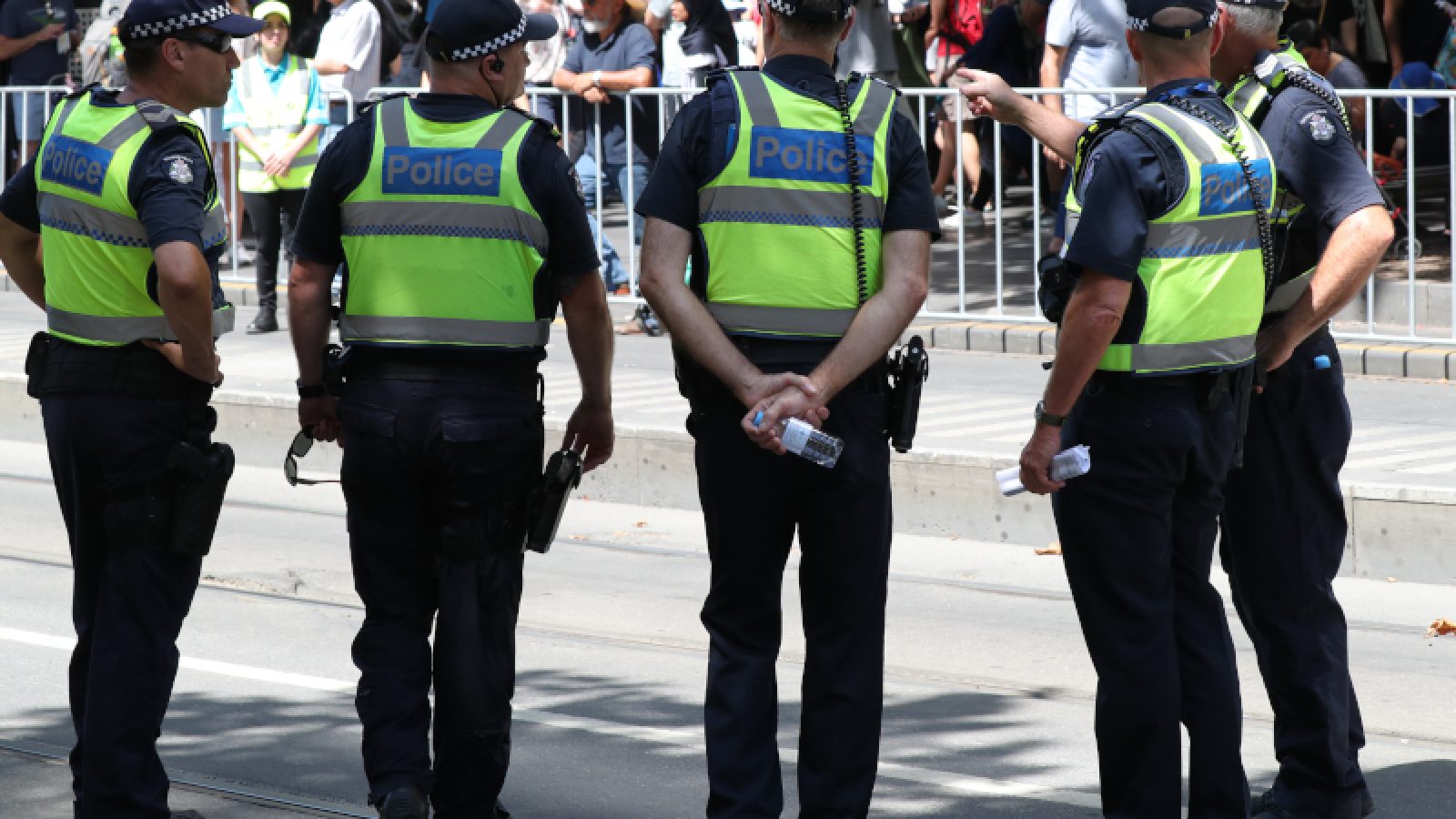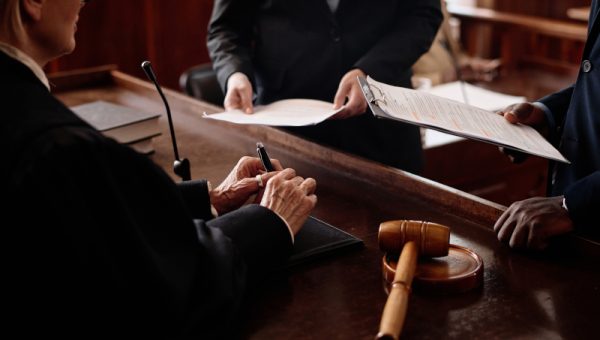Public order offences in Queensland encompass a range of actions that disrupt the peace, safety, and orderly conduct within the community. These offences, primarily legislated under the Summary Offences Act 2005 and the Criminal Code Act 1899, include, but are not limited to, disorderly conduct, affray, and public nuisance. Such incidents not only challenge the tranquillity of public spaces but can also significantly impinge upon the rights and freedoms of individuals involved.
The essence of public order is foundational to the fabric of society, ensuring that all individuals can go about their daily lives without undue interference or intimidation. When this balance is disturbed, it can lead to a ripple effect, impacting not just the immediate participants but the wider community as well. This underscores the importance of understanding the legal frameworks that govern these offences and the protections they afford to both the public and the accused.
This post aims to navigate the complexities surrounding public order offences, shedding light on the intricacies of the law and its application in Queensland. Whether you find yourself directly affected by such charges or are simply keen to bolster your legal awareness, this guide will walk you through the essential knowledge of your rights and the legal avenues available to you. By delving into this subject matter, we seek to empower readers with the information needed to navigate the legal system confidently and effectively, ensuring a balanced understanding of one’s responsibilities and protections under the law.
The Spectrum of Public Order Offences
In Queensland, the spectrum of public order offences is broad, encompassing various behaviours that can range from minor disturbances to more severe incidents. Under the framework of the Summary Offences Act 2005 and complementary legislation, these offences are carefully defined to maintain societal order and protect the community’s well-being. Understanding the nuances of these laws is crucial for recognising the legal implications of certain actions in public spaces.
Public order offences can vary widely in severity, from seemingly innocuous acts like causing a minor public nuisance to more grave actions such as engaging in a violent affray. The distinction between these levels of offences is not merely academic but has significant legal ramifications. For instance, the penalties associated with these offences can range from fines for lesser infractions to imprisonment for more serious violations. This gradation underscores the importance of being aware of the breadth of actions that can be deemed disruptive to public order under Queensland law.
Offensive Language and Conduct
One of the more common public order offences pertains to the use of offensive language and conduct in public spaces. The Summary Offences Act 2005 stipulates that individuals must not engage in behaviour that is likely to cause harassment, alarm, or offence to the public. This includes the use of profane, indecent, or obscene language, as well as gestures or actions that could be considered offensive.
The legal boundaries surrounding what constitutes “offensive” language or conduct are often informed by case law and statutory interpretations, which consider the context and setting of the offence. For example, words that might be deemed acceptable in a private setting could be considered offensive in a public space like a park or street. The courts assess these incidents on a case-by-case basis, taking into account factors such as the presence of children, the nature of the language or conduct, and the general expectations of behaviour in the particular community setting.
Failure to Comply with Police Directions
Another critical aspect of public order offences involves the failure to comply with lawful directions given by police officers. Individuals are legally obligated to adhere to these directives, provided they are reasonable and within the scope of the officer’s authority. Non-compliance can result in charges under the Police Powers and Responsibilities Act 2000, which outlines the responsibilities of both law enforcement and the public in maintaining order.
The consequences of failing to follow police instructions can be severe, underscoring the importance of understanding one’s obligations when interacting with law enforcement. It is essential to recognise that these directives are aimed at safeguarding public safety and order, and adherence to them is a fundamental aspect of civic responsibility. However, it is also vital for individuals to be aware of their rights in such interactions, ensuring that they are treated fairly and justly under the law.
Legal Rights Upon Arrest
When an individual is arrested for public order offences in Queensland, it is imperative that they are fully cognisant of their legal rights. These rights are not merely procedural formalities but are fundamental safeguards designed to ensure fair treatment under the law. Among the most crucial of these rights are the right to be informed of the charges against them and the right to legal representation.
Upon arrest, the police are obligated to clearly communicate the reasons for the arrest, specifying the nature of the alleged public order offence. This transparency is vital, as it allows the individual to understand the basis of the arrest and to begin formulating their legal response. Additionally, every person taken into custody has the unequivocal right to seek legal advice and representation. This access to legal counsel is a cornerstone of the justice system, ensuring that all individuals, regardless of the charges they face, can navigate the legal process with informed and expert guidance.
Reasonable Force and Your Protections
The use of ‘reasonable force’ during an arrest is a topic of significant legal and ethical importance. The law recognises that, in certain situations, police officers may need to use force to effect an arrest. However, this force must always be proportionate to the circumstances and the minimum required to achieve compliance. Thus, the concept of ‘reasonable force’ is governed by a balance between enforcing the law and protecting the rights and well-being of individuals.
Queensland legislation and police policies provide clear guidelines on the use of force, ensuring that any actions taken during an arrest are justified and necessary. Individuals are protected against excessive use of force through various legal mechanisms, including oversight bodies and the possibility of legal recourse. It is vital for both law enforcement officers and the public to understand these boundaries to maintain trust and accountability within the justice system.
The Right to Silence and Legal Representation
The right to silence is a fundamental legal principle that protects individuals from self-incrimination during the legal process. Upon arrest for a public order offence, it is within an individual’s rights to refrain from answering police questions until they have consulted with legal counsel. This right is crucial in preserving the integrity of the legal process, ensuring that any statements made are voluntary and informed.
Legal representation plays an instrumental role in safeguarding the rights of individuals facing charges. A qualified legal professional can provide crucial advice on how to proceed, including the implications of exercising the right to silence and the best course of action given the specific circumstances of the case. Engaging a lawyer early in the process can significantly impact the outcome, ensuring that the individual’s rights are protected and that they receive fair treatment throughout the legal proceedings.
Navigating Public Disorder Charges
Charges related to public disturbances in Queensland, such as affray and riot, carry significant legal implications. Understanding the legal definitions and potential penalties associated with these charges is crucial for anyone facing such accusations. These offences are delineated within the Criminal Code Act 1899, each with specific criteria that must be met for charges to be substantiated.
Affray and riot are serious charges that reflect different levels of public disturbance and group involvement. The legal system categorises these offences based on the severity of the disturbance, the threat to public peace, and the level of violence enacted or threatened. Penalties for these offences can range from fines to imprisonment, depending on the nature and severity of the incident.
Understanding ‘Affray’ and Its Implications
Affray is a charge that arises from the use or threat of violence by one or more individuals that causes a person of reasonable firmness present at the scene to fear for their safety. This offence does not necessarily require the violence to occur in a public place; affray can be charged for incidents occurring in private settings as well. The key element is the level of fear or alarm the conduct is likely to provoke in a bystander.
Legal repercussions for affray can be severe, including substantial fines and imprisonment. Common scenarios leading to affray charges often involve fights or violent confrontations that escalate to the extent that they cause public alarm. For example, a brawl outside a nightclub that leads bystanders to fear for their safety may result in affray charges against those involved.
The Seriousness of Riot Charges
Riot charges represent a more severe form of public disturbance, defined by the involvement of a large group of individuals (12 or more) using or threatening violence for a common purpose in a manner that would cause a person of reasonable firmness present to fear for their safety. The charge of riot underscores the significant threat such collective actions pose to public order and safety.
Facing riot charges necessitates a nuanced legal defence, as the collective nature of the offence and the involvement of multiple participants complicate the legal proceedings. Potential defences may include proving the absence of a common purpose, demonstrating that the accused did not engage in violent behaviour, or establishing that the actions taken were reasonable under the circumstances.
Given the complexity and seriousness of riot charges, securing skilled legal defence is paramount. An experienced legal professional can navigate the intricacies of the case, challenge the prosecution’s assertions, and present a defence that considers the specific context and actions of the accused. The expertise of a knowledgeable lawyer is invaluable in ensuring that the accused’s rights are protected and that they receive a fair and just consideration under the law.
Your Options: From Legal Advice to Court Proceedings
When faced with public order offence charges in Queensland, understanding your legal options is paramount. From the moment of arrest or charge, the decisions you make regarding legal advice and representation can significantly influence the trajectory and outcome of your case. Engaging with the legal system, particularly in matters of public order offences, requires careful navigation through complex legal procedures and a deep understanding of your rights and obligations.
The Role of Legal Representation
The value of experienced criminal lawyers in the context of public order offence charges cannot be overstated. Skilled legal professionals specialise in navigating the intricate nuances of criminal law, offering guidance that is both strategic and tailored to the specific circumstances of your case. An adept lawyer can deconstruct the charges against you, identifying strengths and weaknesses in the prosecution’s case while formulating a robust defence strategy.
Experienced criminal lawyers bring a wealth of knowledge to the table, including familiarity with legal precedents, an understanding of the subtleties of statutory interpretation, and insights into the judiciary’s perspectives on public order offences. This expertise is instrumental in articulating a defence that resonates with the court, potentially mitigating penalties or even leading to acquittal. Moreover, a seasoned lawyer can adeptly manage negotiations and discussions with prosecutors, often securing favourable outcomes before a matter proceeds to trial.
Court Proceedings and Sentencing
The court process for public order offences typically begins with an initial appearance. Depending on the nature of the offence and the plea entered, the case may proceed to trial, where evidence is presented and examined before a magistrate or judge (and possibly a jury, depending on the offence and court). Throughout these proceedings, adherence to procedural fairness and the principles of natural justice is paramount, ensuring that the defendant’s rights are upheld.
Sentencing in public order offences considers various factors, including the nature and severity of the offence, the defendant’s criminal history, and any mitigating or aggravating circumstances. The court aims to balance the principles of deterrence, punishment, and rehabilitation in determining an appropriate sentence. Sentences can range from fines and community service orders to probation and imprisonment, underscoring the importance of effective legal representation in advocating for the most favourable outcome.
Engaging with the legal process, particularly in the context of public order offences, requires a strategic and informed approach. The guidance of a knowledgeable criminal lawyer is invaluable in navigating these waters, ensuring that your rights are protected and that you are positioned as favourably as possible throughout the court proceedings.
Summary Offences and the Impact on Your Record
In Queensland, summary offences, often associated with public order disturbances, represent a category of criminal charges that are typically less severe than indictable offences but still carry significant legal consequences. These offences are generally adjudicated in the Magistrates Court and can encompass a range of actions from minor public nuisances to more serious disturbances such as affray. The implications of being charged with a summary offence extend beyond the immediate legal penalties, potentially affecting one’s criminal record and, by extension, various aspects of personal and professional life.
Legal Consequences of Summary Offences
The legal ramifications of a summary offence conviction can vary widely, depending on the nature of the offence and the circumstances surrounding it. Penalties might include fines, community service orders, probation, or, in more severe cases, imprisonment. Fines are a common penalty for less serious offences, serving both as a punishment and a deterrent. Community service orders, which involve performing unpaid work for the benefit of the community, are also frequently imposed, reflecting a rehabilitative approach to justice.
In cases where the offence is deemed more serious, or where the individual has a prior criminal history, the court may consider probation or even imprisonment. Probation allows the individual to remain in the community under specific conditions, such as regular reporting to a probation officer and participation in counselling or rehabilitation programs. Imprisonment, the most severe penalty for a summary offence, is generally reserved for the most serious cases or where other penalties are deemed inappropriate.
Long-Term Impact on One’s Criminal Record
The long-term implications of a summary offence conviction are significant and multifaceted. A conviction typically results in a criminal record, which can have far-reaching consequences for employment, travel, and educational opportunities. Many employers conduct criminal background checks, and a criminal record can be a barrier to securing employment, particularly in fields that require a high level of trust and integrity.
Furthermore, a criminal record can affect one’s ability to travel internationally, as some countries impose restrictions or require special visas for individuals with criminal convictions. Educational opportunities may also be impacted, with some institutions and scholarship programs considering criminal history in their admissions and eligibility criteria.
Given these potential long-term consequences, it is crucial to seek expert legal advice when facing charges for a summary offence. An experienced criminal lawyer can not only provide a robust defence but also advise on the possible outcomes and strategies to mitigate the impact of a conviction. In some cases, it may be possible to avoid a conviction being recorded, particularly for first-time offenders or where the offence is at the lower end of the severity spectrum. This legal outcome, known as a “no conviction recorded,” can significantly reduce the long-term implications of an offence, preserving the individual’s criminal record and future prospects.
Indictable Offences: Understanding the Gravities
In the legal landscape of Queensland, the distinction between summary and indictable offences is a critical one, particularly within the context of public order violations. While summary offences, as previously discussed, involve less severe breaches of public order typically adjudicated in the Magistrates Court, indictable offences represent more serious criminal actions that warrant a higher level of legal scrutiny and carry more severe consequences.
Indictable offences in the realm of public order can encompass a range of serious behaviours, from significant acts of violence and destruction to large-scale disturbances that pose a considerable threat to public safety and peace. These offences are usually heard in the higher courts, such as the District or Supreme Court, and the legal proceedings can be more complex, often involving a jury to determine the outcome of the case.
Legal Consequences of Indictable Offences
The legal consequences of being convicted of an indictable offence are significantly more severe than those associated with summary offences. Penalties for indictable offences can include lengthy periods of imprisonment, substantial fines, and long-term probation orders, reflecting the serious nature of these crimes and their impact on victims and the broader community.
For instance, charges such as rioting or serious affray, when categorised as indictable offences, not only highlight the individuals’ disregard for public order and safety but also the premeditated or particularly violent nature of their actions. The court, in such cases, considers not only the immediate harm caused by the offence but also the broader implications for community safety and the rule of law.
Navigating the Legal Process for Indictable Offences
The legal process for indictable offences is more formal and complex than that for summary offences. It typically involves a committal proceeding where evidence is reviewed to determine if it is sufficient for the case to go to trial. If the case proceeds, the trial is held before a judge and jury, with the prosecution required to prove the defendant’s guilt beyond a reasonable doubt.
Given the stakes involved in indictable offence proceedings, the role of experienced legal representation becomes even more pivotal. A skilled defence lawyer can navigate the complexities of the legal system, advocate effectively on behalf of the accused, and work towards achieving the best possible outcome, whether through negotiating plea bargains, seeking reductions in charges, or representing the accused at trial.
The differentiation between summary and indictable offences underscores the spectrum of legal consequences associated with public order violations in Queensland. Understanding this distinction is crucial for individuals facing such charges, as it informs the legal strategy, potential outcomes, and the long-term implications of a conviction.
Proactive Measures: Protecting Your Rights
Facing potential public order offence charges can be a daunting experience, but taking proactive steps can significantly protect your rights and improve the outcome of your case. Understanding your legal rights and knowing how to assert them, especially in the immediate aftermath of an arrest or during police interactions, is crucial.
Immediate Actions Post-Arrest
1. Remain Calm and Compliant: While it may be instinctual to react emotionally, it’s imperative to stay calm and comply with basic police instructions. This does not mean you should consent to everything, such as searches or questioning, but rather that you should not resist arrest or act aggressively.
2. Exercise Your Right to Silence: You have the right to refrain from saying anything that may incriminate you. Politely state that you wish to exercise your right to silence until you have consulted with a lawyer. This is not an admission of guilt but a means to protect yourself from providing information that could be used against you.
3. Request Legal Representation: As soon as possible, ask to contact a lawyer. An experienced criminal lawyer can provide crucial advice even before formal charges are laid, guiding you on what to say and do during the initial police interactions.
4. Document the Experience: After the interaction, document everything you remember about the arrest and police conduct, including times, locations, officer badge numbers, and the sequence of events. This information could be valuable for your defence.
During Police Interactions
1. Understand Your Rights: Be aware of your rights during police interactions. You are entitled to know why you are being arrested or detained. If the reason is not clear, politely ask for clarification.
2. Communication: Anything you say to the police can be used as evidence. Therefore, it’s advisable to communicate through your lawyer where possible. If you do speak to the police directly, be concise, clear, and truthful without volunteering unnecessary information.
3. Identify Witnesses: If there were witnesses to the incident or your interaction with the police, try to obtain their contact information. They may provide critical evidence for your defence.
Taking these proactive steps can significantly safeguard your rights when facing potential public order offence charges. Engaging a knowledgeable legal professional early in the process not only ensures that your rights are protected but also places you in the best possible position to navigate the legal challenges ahead. Remember, the actions you take immediately following an incident can have a profound impact on the legal proceedings and ultimately, the resolution of your case.
Key Takeaways
Navigating the complexities of public order offences in Queensland requires a comprehensive understanding of the legal landscape and an awareness of one’s rights. This post has covered a broad spectrum of topics related to public order offences, from the initial categorisation of behaviours that constitute these offences to the intricate legal proceedings that follow. Key takeaways include:
1. Understanding Public Order Offences: Recognising the range of behaviours classified under public order offences, from minor disturbances to more serious incidents, is fundamental. These offences can have significant implications for both societal peace and individual rights.
2. Legal Rights Upon Arrest: It’s crucial to be aware of your rights when arrested, including the right to be informed of charges, the right to remain silent, and the right to legal representation. These protections are in place to ensure fair treatment under the law.
3. Consequences and Legal Implications: Public order offences carry a variety of legal consequences, from fines and community service to imprisonment. The long-term impact on one’s criminal record cannot be understated, affecting future employment, travel, and education opportunities.
4. The Role of Legal Representation: Experienced legal counsel is invaluable in navigating the complexities of public order offence charges. A skilled lawyer can provide strategic advice, represent your interests in court, and work towards securing the best possible outcome.
5. Proactive Measures: Taking proactive steps if facing potential charges, such as exercising your right to silence and requesting legal representation, can significantly impact the outcome of your case.
Understanding your legal rights and the implications of public order offences is crucial, but knowing when and how to seek professional legal support is equally important. Whether you’re directly involved in a public order offence case or seeking to bolster your legal knowledge, the value of experienced legal advice and representation cannot be overstated.
If you find yourself navigating the complexities of a public order offence, remember that you do not have to face the challenges alone. Seeking the expertise of a knowledgeable criminal lawyer can provide you with the guidance and support needed to effectively address the charges and protect your rights.







